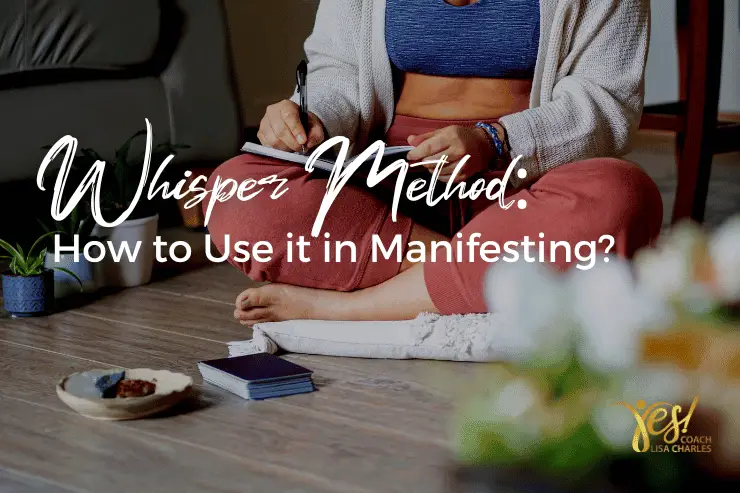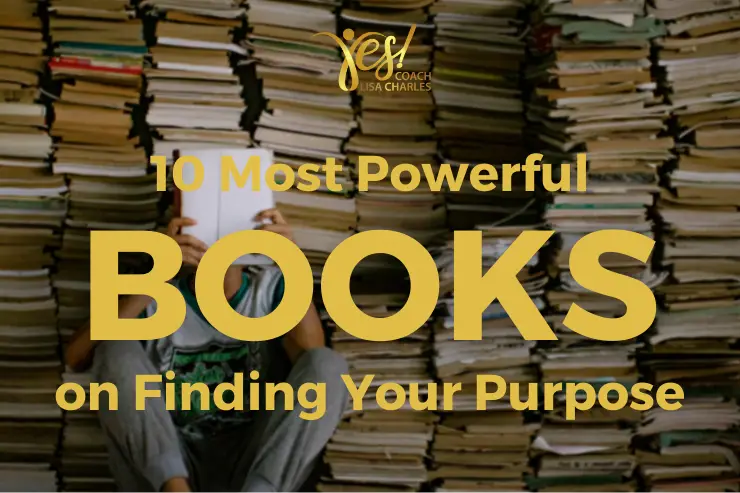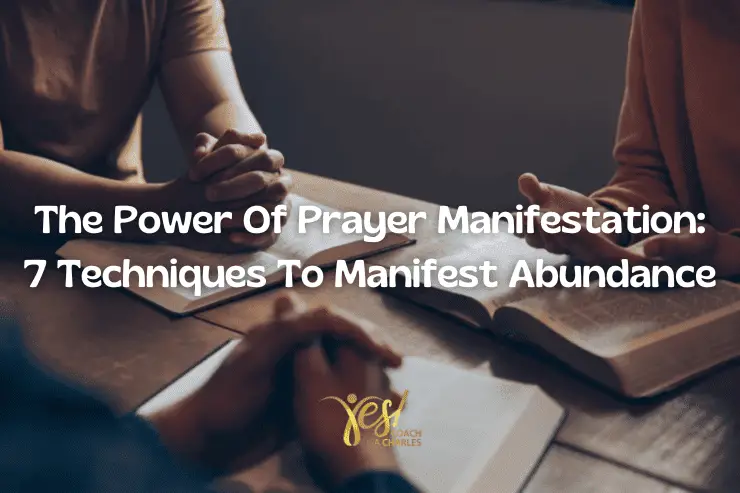Why Do I Feel Death Is Near: 7 Common Reasons Based on Experiences
I move through my day. I’m conquering my goals and doing what I love.
But no matter what I accomplish—or who I meet along the way—a nagging thought sits in the back of my mind. It’s always with me.
Why do I feel death is near?
I’m not alone. Fear of death is a very human experience we all share.
It hovers in the corners of my mind and even gets in my face as if it has something to say.
I could ignore it, pretending I never think about dying. I could push out that emotion because it doesn’t align with how I see myself or who I want to be.
Or I could seek to understand it.
I can look at why this feeling exists.
What are these thoughts of death trying to tell me anyway?
Through real-life experiences and an in-depth look at the human condition, we can make peace with the lifelong companion—the fact that we all die someday.

Fear and Mortality

Of course, I’m going to die. Everyone does.
People have all kinds of ways to cope with those feelings. I’ll get into those a little later.
But death is inevitable. Life is finite.
And that’s what makes each life—my life—so precious.
Philosophers and science fiction authors alike have puzzled over this paradox.
If I could live forever, would I feel any carpe diem? Or would no expiration date leave each day feeling more meaningless than the last?
Knowing it will end someday can be a sense of motivation.
Every journey, even the most epic, has a destination.
In many cases, it’s not knowing. What comes next? If anything?
I may be like Sarah, a young, successful, and vibrant woman I met.
She’s plagued by late nights wondering if a void that awaits.
Or maybe I’m John, an elderly man. He’s proud to say he lived well.
He accomplished everything he wanted to do.
Now, he battles an unshakable sensation as his days wind down.
For him, “Why do I feel death is near?” is a more relevant question than ever.
But is John’s fear of death more real or “justified” than Sarah’s…than mine?
No.
All of us are confronted daily with reminders—large or small—of our mortality.
It’s not just death I fear. Thoughts of losing connection with a world I love being a part of and people I don’t want to leave behind bring up charged emotions that can feel overwhelming.
Health-Related Anxiety

-
Illness and Its Impact
Death is like a ghost looming over my shoulder, just out of sight. I turn my head.
It’s gone.
Experiencing sickness amplifies this feeling of something lurking there.
It could be my illness or a loved one that starts the fear spiral.
I may start to wonder if I’ll fully recover. Or is this my new reality?
These experiences make death feel near.
I remember Gina, a dancer, who slowly had her vitality dragged from her by a progressive diagnosis.
Each day became a tightrope walk between hope and fear.
On good days, she thought that maybe she was getting better.
Then, the bad days reminded her of her prognosis.
Then there’s Mark. He hadn’t been able to sleep through the night for weeks after getting his diagnosis, even though a good night’s sleep was what his body so desperately needed.
His life was at a crossroads. Should he continue to pursue his corporate dreams, or was it time to rethink his career trajectory?
Have you been here? I understand where you’re coming from.
Because I’ve been there.
We all share this story. So we ask, “Why do I feel death is near?”
I’m acutely aware of this experience as a professional singer who lost her voice to illness.
Losing a vital function is a sort of death.
So, of course, I felt more death just around the corner…until I decided that losing something so precious wouldn’t end my story.
If that’s what life wanted to write for me, I’d pick up the pencil to tell a different tale.
I’d already done it once when I decided to leave my career as a high-power to pursue my dreams of singing and acting.
-
Aging and Mortality
I hear thunder in the distance, and with each day, it gets closer.
One gray hair becomes a full head of them. A smile line becomes a wrinkle, then 10.
Whenever I experience a new ache or pain, I wonder if it’s here to stay. Or can I just walk it out?
Society is fixated on youth.
It expects me to fight to retain my youthful appearance at all costs.
But how often do these remedies neglect the biggest factors in how we age—nutrition, mindset, physical fitness, and human connections?
I can say all day, “Age with Grace and Excellence”. I can focus on health and wellness, not some fountain of youth.
Still, societal messages impact me, even as I try to flip the script on aging.
Forgive me if I stop along the way to do some pushups, spend time with those I care about, and experience life here and now.
I remember Michelle. She was grappling with the weight of expectations to defy aging.
She wondered if she should do more to conform to society’s expectations.
Or was a focus on wellness at any age a better path to follow?
We talked about her fears, and she chose to begin her wellness journey, following my 3-step process.
Commit: Focus on the Yes! Mindset, discovering the authentic you – from the inside out.
Do: Uncover the brain/body connection and the A.G.E. life (Age with Grace and Excellence).
Live: Explore the Yes! Life, reach your fitness goals, and realize your life vision.
Living in our hope gives us the strength to confront the negative internal voices and thoughts that lie within each of us.
The key is to learn how to turn the negative into the positive. “I can’t” transforms to “I can.” “I won’t” transforms to “I will,” and “no” becomes “yes.”
By replacing each negative with three to five positive thoughts, you begin to create an environment conducive to positive living, and you move towards achieving a YES! Mindset.
Life Transitions and Uncertainty

-
Major Life Changes
Some live and die without ever going anywhere or doing anything.
It’s a choice like any other. But for most of us, life is a series of changes, experiences, joy, and disappointments.
Lost jobs, divorce, broken friendships, financial hardships—they weave threads of doom through our lives.
They shake me out of my comfort zone. And once again, they unearth my fear of the unknown.
And that has me thinking about death and dying. Why do I feel death is near?
Because these are the death of a chapter in my life.
Meet Alex, whose career’s abrupt end after 10 years with one company introduced sudden insecurity to their life.
Their partner was 8 months pregnant and depended on them to provide.
Now, they’d gone from a steady 6 figures to applying for pizza delivery jobs just to meet the necessities while they planned their next move.
Major events like this can bring out the best and the worst in us.
I can feel stuck in debilitating anxiety or see the opportunity to do something new.
-
Existential Crises
When death feels near, I start contemplating life’s most profound questions.
What’s the meaning of life? Does anything I do really matter? Why do I feel death is near?
It’s human nature to want to dissect meaning and purpose out of the unknown.
Few topics bring up as many questions with no answers as death.
Maya felt a gnawing emptiness she couldn’t shake.
She sought answers through endless self-help books.
Each of them claimed to have the one answer that topped all the rest.
But the further she dug, the more she realized that it didn’t really matter which one true answer she followed.
She had to be committed to applying what she’d learned.
She had to find her, Yes! Her reason to thrive.
By making choices that break old habits and create new norms, our hope edges ever closer to becoming our reality.
The road to finding hope is through the choices we make.
Choices open the window of opportunity.
When the choices you make close that window, you end the possibility of change and enter a world of false living and limited thinking.
Loss and Grief

-
Coping with Loss
After losing a loved one, a storm of emotions swirls inside me.
They take on a life of their own.
Death really takes the spotlight in this scenario.
When I lose a parent, aunt, or uncle, I become the “oldest generation” in the family.
Then, if I lose a sibling, cousin, or dear friend, death creeps even closer.
And God forbid I lose a child. That turns everything I know on its head.
Losing a loved one can reshape relationships with those still living, often for the better.
Kaylie had never been very close with her brothers and sisters.
They’d all gone their separate ways after college. They only ever saw or talked with each other around the holidays.
That changed when Mom died.
And they all suddenly realized they wouldn’t always have each other. Now is precious.
Mental Health Struggles

-
Depression and Hopelessness
In the depths of depression, thoughts of death become my unwelcome companions.
I don’t see this getting any better and wonder if there’s any reason to go on.
But even in this darkness, seeking help becomes a lifeline.
I sometimes need someone to light a lamp for me and say, “Hey, over here.”
A guide takes my hand and leads me out of the prison I built out of anger, regret, and despair.
Without that help, I would continue to reinforce those walls.
Why do I fear death is near in times like these?
It’s because the fog of despair blurs the lines between life and ceasing to exist.
That fear of death can swallow me whole. And oh, it’s gotten close.
Or it can spur me on to triumph. It can allow me to become a beacon of light that showcases the human spirit’s capacity to endure and thrive.
I choose the latter. And so did Angela.
When I met her, she told me she had everything: a loving husband and two great kids who were by then in college.
She worked full-time as a nurse, caring for others all day.
But she knew she didn’t feel motivated to take care of herself.
She didn’t know why she couldn’t be happy.
She saw her family and work as the only reason she remained alive.
Once she gave in and got the mental health support she needed, she realized she could make peace with death and find her own reasons for living.
She could explore the Yes! in her life.
I have also experienced similar bouts of depression and disillusionment with the world, as I discuss in my book.
I had been struggling with my weight, yo-yo dieting, and alternating between no exercise and too much.
When I ended up in the hospital with a painful intestinal illness, I recognized this was a place I didn’t want to stay.
Through years of gaining and losing weight and exercising and not exercising, I had lost muscle, gained fat, and now had trouble digesting a variety of foods and sleeping through the night.
I felt so tired and lethargic.
I was a mess!
I had a moment of personal reckoning.
The truth was in—I had let myself go to a place that I now found completely unrecognizable, and there was no more hiding or pretending.
I remember crying that inconsolable cry, feeling so sorry for myself.
But then, I realized that now was the time for me to get control over my body.
That was the one area of my life where I had never experienced sustained success.
Spiritual and Cultural Beliefs

-
Religious Views on “Why Do I Feel Death Is Near?”
Like any strong belief system, religious beliefs hold power over me even if I don’t believe everything I learned as a child.
From a young age, my beliefs reinforced themselves in the neural pathways in my brain like a habit.
They’re hard to overwrite.
They influence how I see the world and shape my interactions.
So, even if my views have changed a lot over the years, I recognize that beliefs about the afterlife, the human soul, and a higher power all color my life experiences.
Faith brings comfort that can blunt Death’s edge.
Consider Maria, whose unwavering faith in an eternal reunion with her loved ones in heaven eases the pain of separation.
Then there’s Amir, whose belief in reincarnation replaces a sense of “ending” with one of continuity.
But even with faith, both Maria and Amir can say they have no fear of death, when in fact, some “fear” of death seems hardwired into the human experience.
-
Cultural Perspectives
During my career, I have had the opportunity to meet many people with various cultural beliefs.
From the vibrant celebrations of lost loved ones on the Day of the Dead among those with Mexican heritage to cleaning and preparing home alters for loved ones in the Japanese Buddhist tradition of Obon, many cultures have ways to both respect and celebrate the dead.
These rituals aren’t just for the dead or dying.
They are like an ointment easing the heartache of losing someone.
Fatima grew up in the Islamic faith and culture.
Her culture has taught her that this life is temporary and that she will pass into the eternal and be reunited with her loved ones upon death.
On the other hand, Li Jing has been raised in a culture that holds an Atheistic perspective.
She doesn’t believe in a “higher power” or the afterlife.
Death is the end. So, it’s important to live life to its fullest.
Facing Mortality and Finding Peace

-
Acceptance and Resilience
In the embrace of brotherhood, John and Edgar, my cherished friends,
In endless laughter, our spirits did transcend.
In Adventures Wild, our bonds grew ever stronger,
As Willing Workers, we danced through life’s songs.
Each day, their voices, “I love you,” they’d convey,
A promise of affection, come what may.
But in 2021, COVID’s cruel hand did sever,
The ties that bound us, are now lost forever.
Though life’s landscape changed, and shadows did descend,
Their love and laughter, they left to mend.
In the tapestry of memories, we find our strength anew,
For their legacy of love, we’ll forever hold true.
In the depths of our hearts, their spirits live on,
Guiding us forward, long after they’re gone.
Their love ignites a flame, a beacon in the night,
Fueling the legacy we’re yet to write.
With each sunrise, we’ll honor their memory with grace,
In the smiles we share and the challenges we embrace.
Through the tears we shed, we’ll find the way,
To create a legacy of love, come what may.
Frequently Asked Questions (FAQs)

What is thanatophobia?
Thanatophobia describes an intense and “irrational” fear of death or dying.
It’s an anxiety disorder that can cause significant distress and interfere with daily life.
If you have thanatophobia, you may experience heightened anxiety, panic attacks, and persistent thoughts about death.
My intent is not to normalize this level of fear.
If you’re experiencing thanatophobia, please find a supportive environment to explore these feelings and get to the root of that fear.
Is it normal to think about death often?
Thinking about death occasionally is a natural part of being human.
People are curious. We like to explore philosophical ideas.
But, if you’re feeling overwhelmed, disrupted, and anxious by thoughts of death, you may have a more serious issue, such as thanatophobia or other anxiety disorders.
How can I cope with the fear of death?
Coping with the fear of death involves various strategies that can help alleviate anxiety and provide a sense of comfort. I recommend:
- Learning about death from different cultural, religious, and philosophical perspectives
- Practicing mindfulness and being present in the moment can help manage anxiety
- Talking to friends, family, or a mental health professional
- Engaging in activities you enjoy, practicing relaxation techniques, maintaining a healthy lifestyle… And, of course
- Uncovering the brain/body connection and the A.G.E. life (Age with Grace and Excellence).
When should I seek professional help for my fear of death?
If your fear of death is causing significant distress, making daily life more difficult, or leading to avoidance behaviors, please seek professional help.
Why Do I Feel Death Is Near?
In this article, we’ve looked into the universal fear of death. We explored psychological, cultural, and existential factors that can have us asking, “Why do I feel death is near?”
We’ve all witnessed how health concerns, major life changes, aging, and even religious beliefs can influence our perceptions of mortality.
Cultural perspectives have shown us the rich diversity in how humans cope with thoughts of death.
This all highlights the beauty of rituals, practices, and perspectives worldwide.
I hope that sharing my story and those of others I’ve met along the way (with details changed to protect their privacy) has underscored the power of acceptance, resilience, and seeking help when needed.
I encourage you to make peace with death and explore the Yes! Life. Reach your fitness goals, and realize your life vision.
FOLLOW US ON:
Facebook
Pinterest
Instagram
LinkedIn
You may also like:
200+ Empowering New Beginnings Quotes to Ignite Your Inner Courage
110 Heartwarming ‘You Are Special’ Quotes to Brighten Your Love One’s Day
505 Things to Be Grateful For That Will Lighten Your Day







